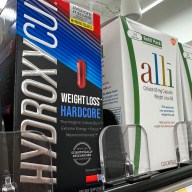In recent memory the debate between buying and renting had been seriously one-sided. The simple truth was that, unless you were planning on leaving the province with no option or desire to rent your property, buying was almost certainly the way to go. Of course the most important factor that made this reasoning logical was the fact that the difference between your rental payment and your mortgage payment on a given property was so close that it just made good sense to try and build your own equity rather than help someone else pay off their mortgage.
Today it seems many potential purchasers have forgotten the benefits of buying over renting, as part of the mass hysteria that has, to an extent, gripped our economy.
Please don’t misunderstand. Our economy is certainly in a recession. However, it’s one thing to understand that falling into a lion’s den can have grave consequences, but it’s quite another to be afraid of the boogeyman! The second most common fear associated with purchasing a home today is job security. The first of course is the state of our market but I’ve already written several articles recently on that topic, so let’s examine this second most significant obstacle towards achieving your goal of owning your own home, this time around.
The prospect of losing your primary, and in many cases only, source of income is a significant and real concern for most of us and especially in today’s economy. However, does that concern validate the number of people looking at renting versus buying? The answer may surprise you, especially when you re-examine the true state of our real estate market.
Suppose our friend Bob falls victim to downsizing and now poor Bob has lost his primary flow of income. Would poor Bob be in a better position if he was renting, or if he was making mortgage payments? If Bob was truly living hand-to-mouth I would suggest that renting was his better option, simply because he can pick up and run without having to worry about another dime, outside his security deposit. Assuming of course the lease was in his favour. However if Bob, like most Torontonians, had the benefit of a modest savings account that could be dipped in to if absolutely necessary, poor Bob wouldn’t be nearly as poor, if he owned.
If Bob owned a home, he could maintain the home, along with the equity and rent savings, for as long as possible. If he was going to seek a loan, or temporary help from parents, he’d be feeding that money back into himself, at least, rather than ensuring that his landlord was continuing to make his money. At the end of the day if Bob needed to sell, so long as Bob purchases wisely, his home will be aided by the wide-spread stabilization of prices in many parts of the GTA, which means Bob would not end up nearly as poor as you might think.
Now, having said all of that, if Bob is in a situation where the prospect of losing his job means that he will likely have to forfeit the home and declare bankruptcy then no, buying is not the better option. In that situation Bob would be better off living hand-to-mouth in a rental that he could wipe his hands clean at the drop of a pink slip. But if Bob feels that losing the house is not the main reason for concern, and that it is more of a monthly cash flow dilemma, Bob would do well to remember that the gap between mortgage and rent payments, given today’s admirably low interest rates and buyer’s market, has not been more favourable to purchasers in almost half a decade.
If you have any questions about anything discussed in this article feel free to contact Amit at amitp@roges.com.
– Amit is a Realtor/Developer with Re/Max. amitp@rogers.com
















